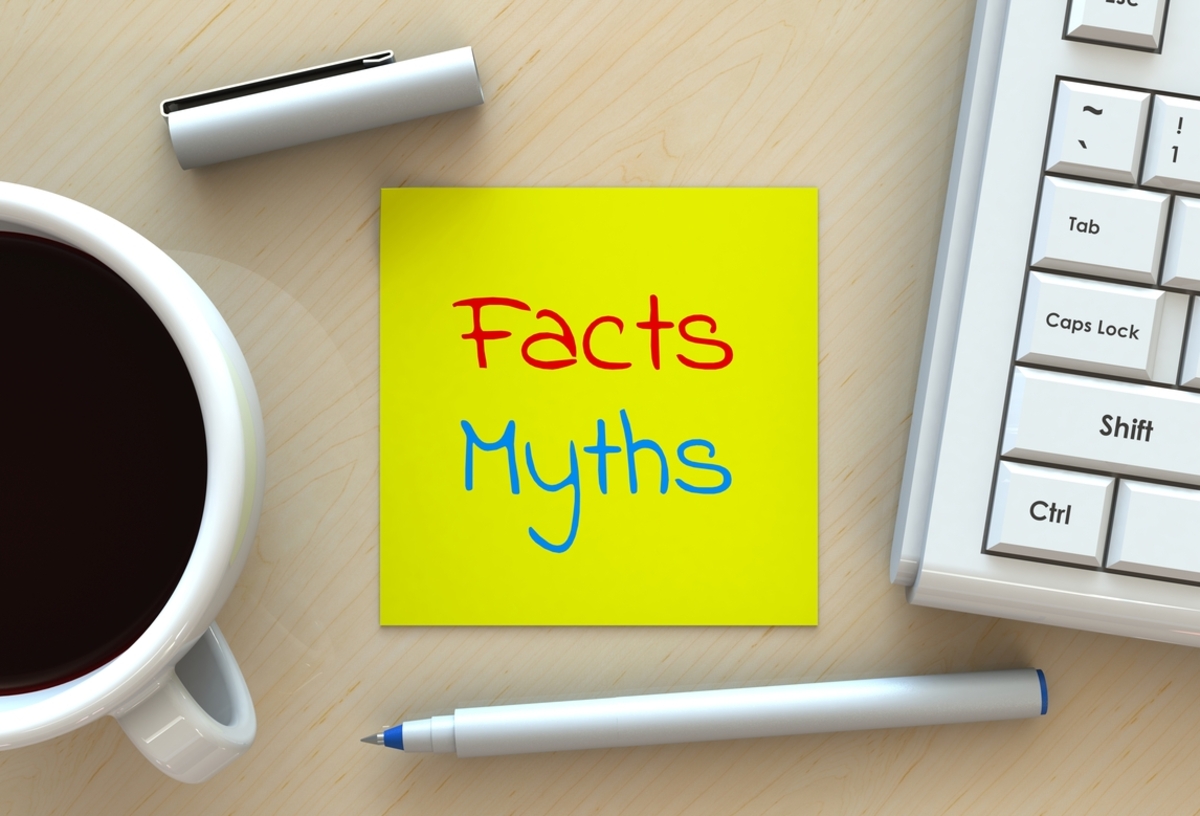Nearly everyone will have heard about PTSD — post-traumatic stress disorder — by now, and we've undoubtedly made great strides when it comes to understanding trauma since the second world war. While that's great news, since it means better treatment options for trauma survivors with PTSD, increased general awareness has also inevitably allowed ideas that just don't hold up to scrutiny to seep into the minds of many.

1. Only combat veterans or people who lived through war get PTSD.
No.
A diagnosis of PTSD does require that a person lived through an identifiable trauma.
When we think of trauma, our minds may immediately wander to combat veterans, civilians who lived through a war, people who were held hostage during an armed robbery, or perhaps victims of physically brutal domestic violence. We may also think of victims of rape and other kinds of sexual assault, which may or may not be physically violent.
Not all trauma is intentionally inflicted by other people, though. (Severe) accidents, sudden medical emergencies during which someone (perhaps you, perhaps someone you care about) could have died or someone did lose their life, and natural disasters like earthquakes or hurricanes can result in PTSD, too.
So, research suggests, can long-term and malicious social exclusion. This could explain why autistic people might have a higher risk of developing PTSD, why bullying can lead to PTSD even when no physical violence was inflicted, and why being on the receiving end of racism can cause PTSD.
2. Everyone who struggles with mental health after a trauma has PTSD.
Nope.
Not everyone who experiences a trauma will go on to develop post-traumatic stress disorder — more about that in a little while — but nearly everyone who lives through a traumatic event will suffer emotionally, at least for a time. That's normal under the circumstances; something horrific just happened, after all, and your thinking patterns, emotions, and physical body will struggle to adjust.
Many people, especially those who lived through one-time and short-term traumas, will recover. Those who struggle in a way that can be described with an existing diagnostic label won't all have PTSD, however, and those who do may also have another diagnosis. Other conditions that can result after trauma include:
- Major depressive disorder (clinical depression).
- Acute stress disorder, a trauma-related disorder that can be diagnosed in the immediate aftermath of trauma.
- A substance abuse disorder — when using drugs or alcohol in an effort to self-medicate.
- Lesser-known diagnoses included in the DSM-5's chapter on trauma-related disorders, including adjustment disorders, and in children, reactive attachment disorder.
PTSD also has several subtypes, and the one you should definitely be aware of existing is complex PTSD — a form of PTSD that can set in after someone lives through repeated, severe, or prolonged trauma, especially during childhood. In this form of PTSD, a person's self-image and faith in other people are both severely impacted.
3. Getting PTSD means you're weak.
Again, no!
It is true that not everyone, or even a majority, or people who experience traumatic events go on to develop post-traumatic stress disorder. That is not because they're flawed or weak people, however.
What does that mean? Risk factors for PTSD include already previously having lived through trauma, feeling extreme horror or fear before and during the trauma itself, and not having a solid supportive social network to help you heal after the fact. Everyone has an internal "coping credit bank", and really, everyone can go into the red and reach that threshold at which they simply can't build resilience any more.
Anyone can develop PTSD after living through a trauma, but you're more likely to end up with post-traumatic stress disorder if you're in a rougher situation than most — something that has nothing to do with weakness, and everything with circumstances. If you're even tempted to think that someone is weak because they have post-traumatic stress disorder, you're making someone's already rough world just a little more grim.
4. There's no cure for PTSD — or, anyone can heal from post-traumatic stress disorder and go back to their old selves
Both would be wrong.
It is possible to reach remission from PTSD — to no longer meet the diagnostic criteria after you've been diagnosed with it. Treatments like prolonged exposure therapy and cognitive processing therapy can help people get there (faster). Some portion of people previously diagnosed with post-traumatic stress disorder will reach remission without formal treatment, as well, though research data has come up with such a broad range that it's impossible to say how many.
That doesn't mean the trauma will stop impacting the person, however. It won't. Just like we carry all our formative experience with us, for better or for worse, trauma will continue to play a part in the life of anyone who once carried the label of post-traumatic stress disorder. Never assume someone can "get over it" and go back to the way they were.
"Before" is gone. There's only the future, now, and whether that's your own or someone else's, you can help it be better by caring for the very real new needs that a life after trauma may bring.
- Photo courtesy of SteadyHealth
- American Psychiatric Association. (2013). Diagnostic and statistical manual of mental disorders (5th ed.). Arlington, VA


Your thoughts on this